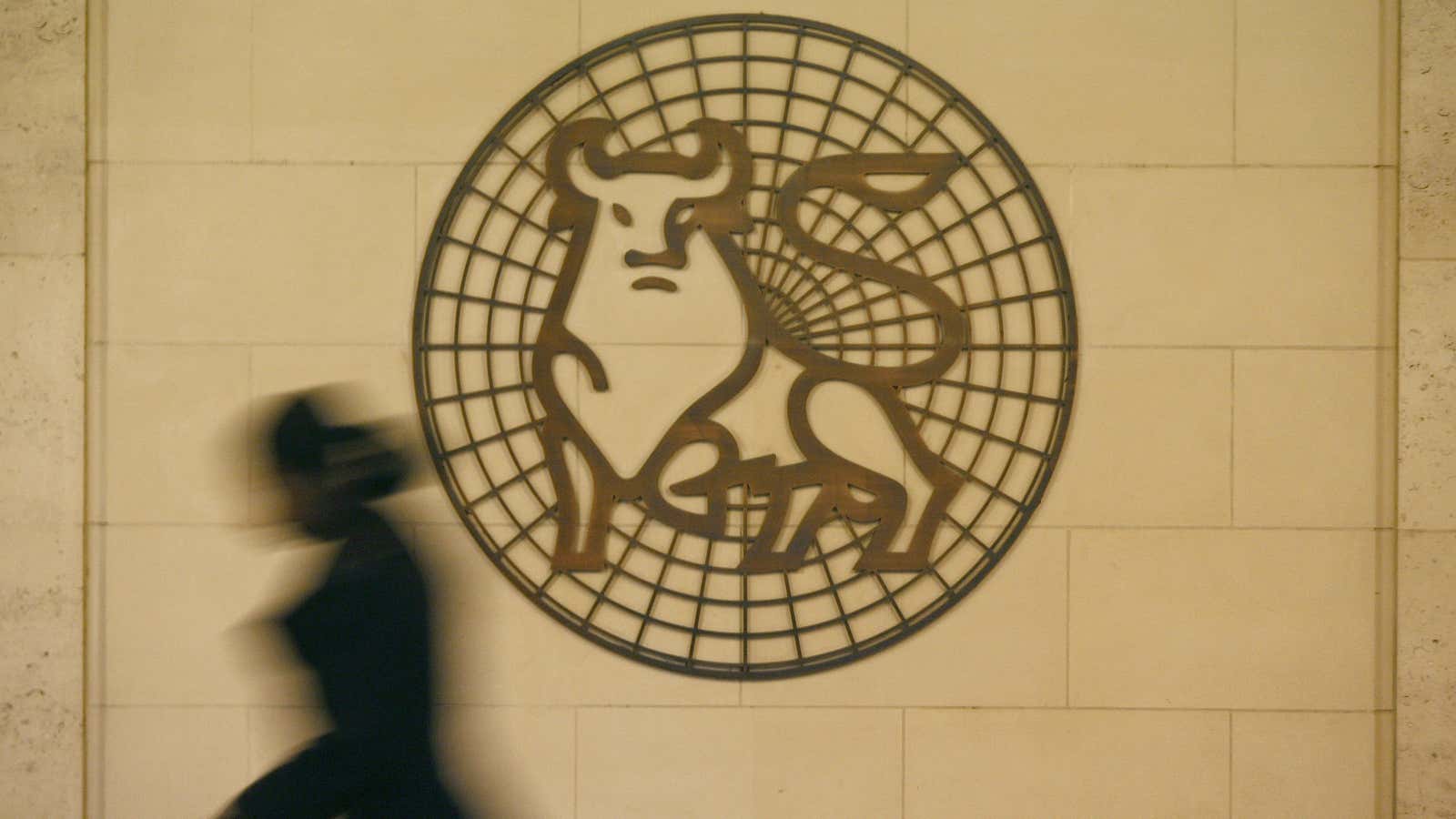In what may be a prudent move, Merrill Lynch has barred customers and financial advisers who make transactions for them from buying bitcoin. That’s bound to disappoint some customers: Bitcoin’s price climbed 14-fold in 2017.
Individual retail traders are flooding apps that make it easy to buy and sell things like ethereum or bitcoin. Coinbase, one of the biggest US crypto exchanges, is Apple’s No. 2 finance app, with more than 440,000 ratings. MyMerrill for iPhone comes in at No. 199, with 49 ratings.
These exciting days for cryptocurrency exchanges recall the dot-com fever, when day traders betting on tech stocks swarmed online brokerages like E*Trade—a firm that helped fuel the euphoria and was humbled by the collapse. The company’s stock price climbed to more than $550 a share before the bubble popped. Its stock trades at about $50 after climbing 40% in the last year.
Bitcoin and its cousins are an enormous opportunity for brokers and financial advisers to win over a new generation of traders and ordinary investors. More people now understand that beating the stock and bond markets is nearly impossible, so are instead sinking savings into low cost exchange-traded funds, depriving some brokers of trading commissions.
Some Merrill brokers were disheartened to miss out on the bitcoin enthusiasm, while others acknowledged it may not be worth the risks, according to the Wall Street Journal (paywall), which first reported Merrill’s decision.
Goldman Sachs is starting a trading desk for digital assets, according to Bloomberg. For Cboe Holdings and CME Group, which operate derivatives markets, bitcoin is a chance to sell new retail customers on futures, which allow investors to speculate on asset prices at a later date. Merrill Lynch, the brokerage unit of Bank of America, doesn’t allow its customers to trade bitcoin futures either.
Merrill clients who bought into the Grayscale Investment Trust bitcoin fund before the ban will be allowed to keep their positions but not in fee-based advisory accounts, citing “suitability and eligibility standards.” The trust is supposed to track the cryptoasset’s price but has at times traded at a 75% premium to bitcoin, raising questions about whether buyers are getting a fair deal on their investment.
As for E*Trade, it became something of a symbol of the dot-com euphoria, and the company has since sought to rehabilitate its image. Merrill Lynch could be trying to show that it learned from such episodes. In the meantime, you can buy bitcoin futures on E*Trade.
